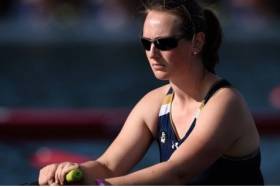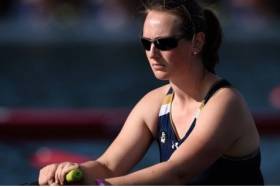Displaying items by tag: Ailish Sheehan
Death of Rower Ailish Sheehan
#Rowing: Ailish Sheehan, the Limerick rower who was badly injured in a fall on Sunday after the World University Rowing Championships in Poznan, has died. BUCS, the British university and colleges sports organization, said in a statement:
British Universities & Colleges Sport (BUCS) is deeply saddened to report the death of Ailish Sheehan on 9th September 2016.
Ailish, a postgraduate student at Goldsmiths, University of London representing the University of London Boat Club, was involved in an accident after the culmination of the 2016 FISU World University Championships for Rowing in Poznan, Poland on Sunday evening, 4th September. Ailish had been competing in the Women’s Four (W4) at the Championships, where she won a bronze medal.
BUCS, British Rowing and Rowing Ireland are providing support to her family during this difficult time and ask for their privacy to be respected.
On behalf of everyone at BUCS, I wish to extend our condolences to the family and friends of Ailish and our thoughts are with them at this difficult time.
Limerick Rower Sheehan in Critical Condition After Fall
#Rowing: Limerick rower Ailish Sheehan (23) is in critical condition after a fall after she had competed at the World University Rowing Championships in Poznan, Poland.
Sheehan apparently fell on a footpath when celebrating taking a bronze medal while competing with the Britain team. With crewmates Rebecca Edwards, Annie Withers and Gillian Cooper, she finished third in the women’s four.
Sheehan, from St Michael’s rowing club, had rowed in an Ireland four at the World Under-23 Rowing Championships in 2013 with Lisa Dilleen, Emily Tormey and Aifric Keogh. They finished fourth.
She had won a scholarship to Notre Dame in the United States in 2011 and completed a degree there in design. She stroked the Notre Dame crew to sixth in the Head of the Charles in 2014. She returned and moved to Britain and switched to the British system.






























































